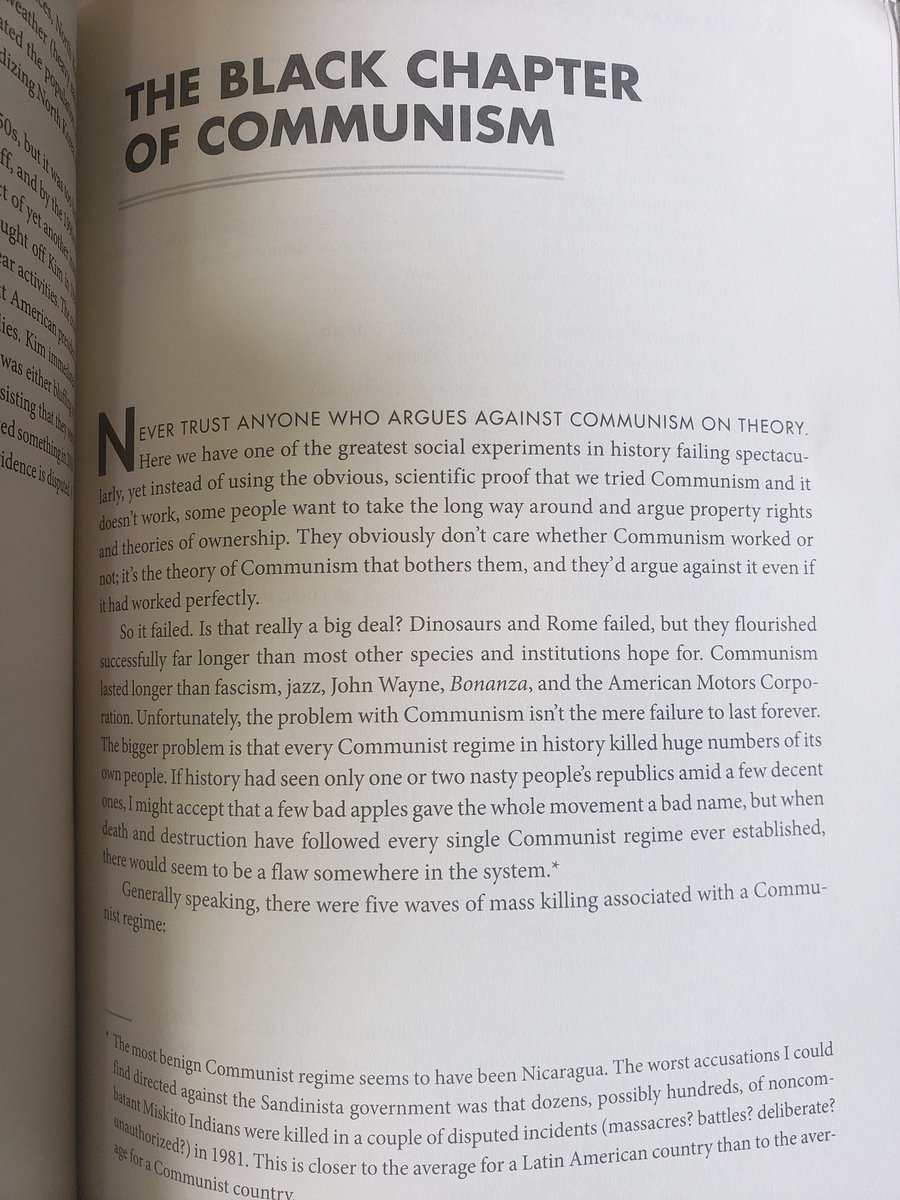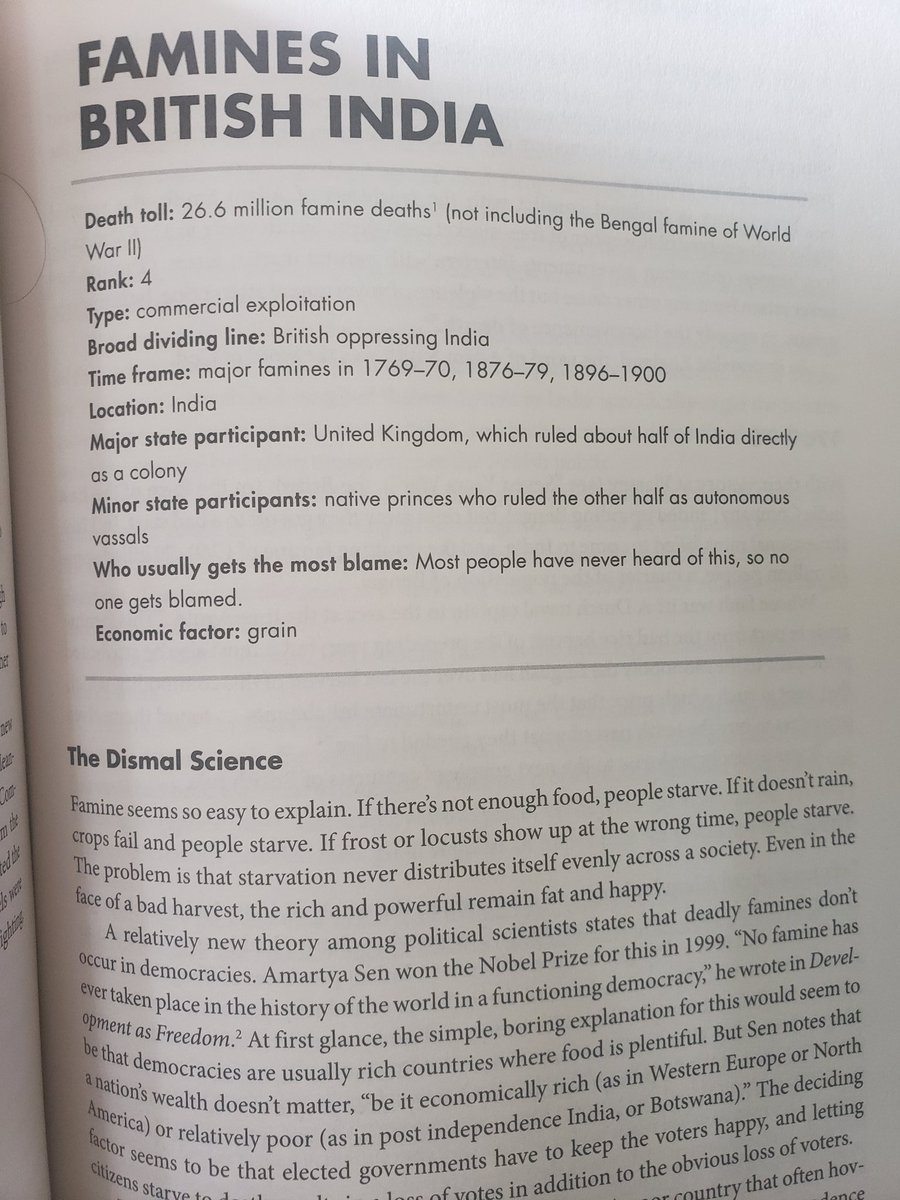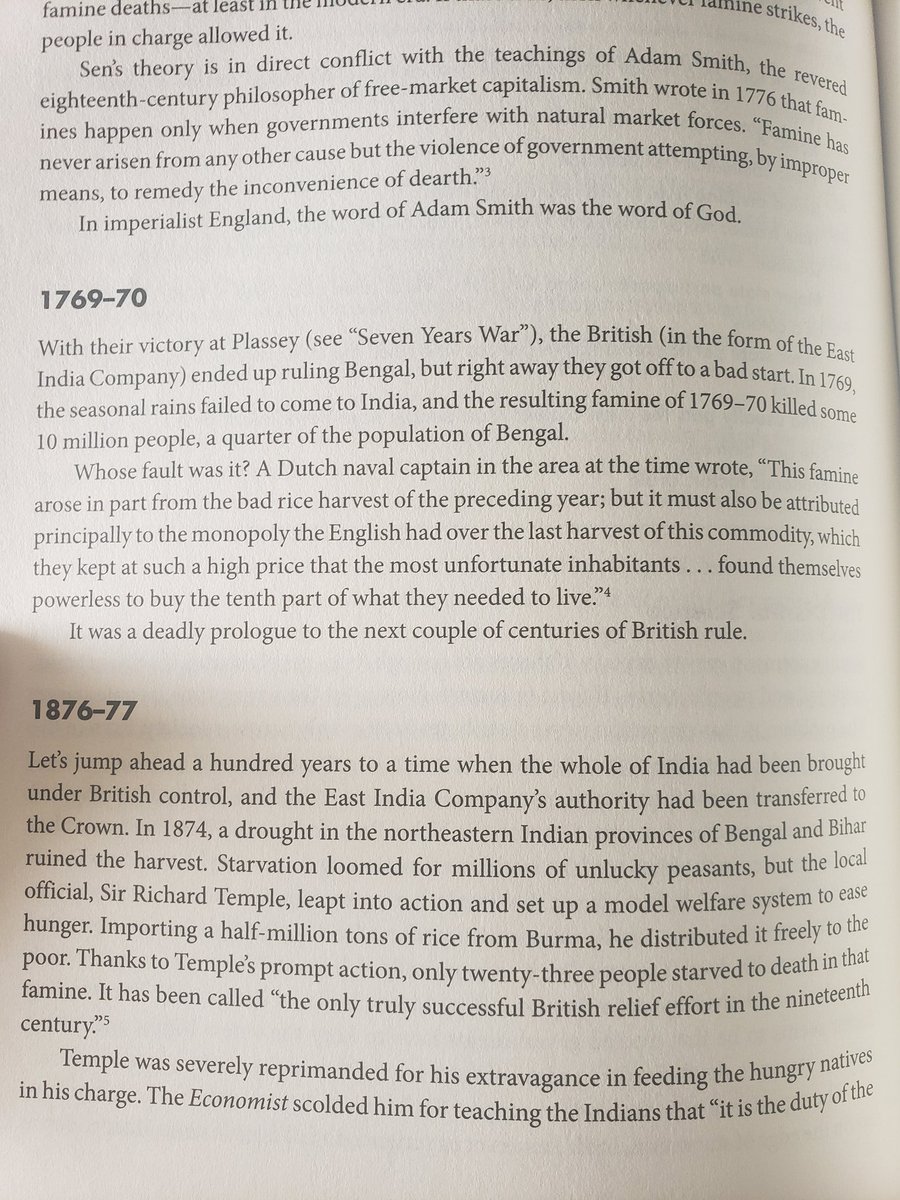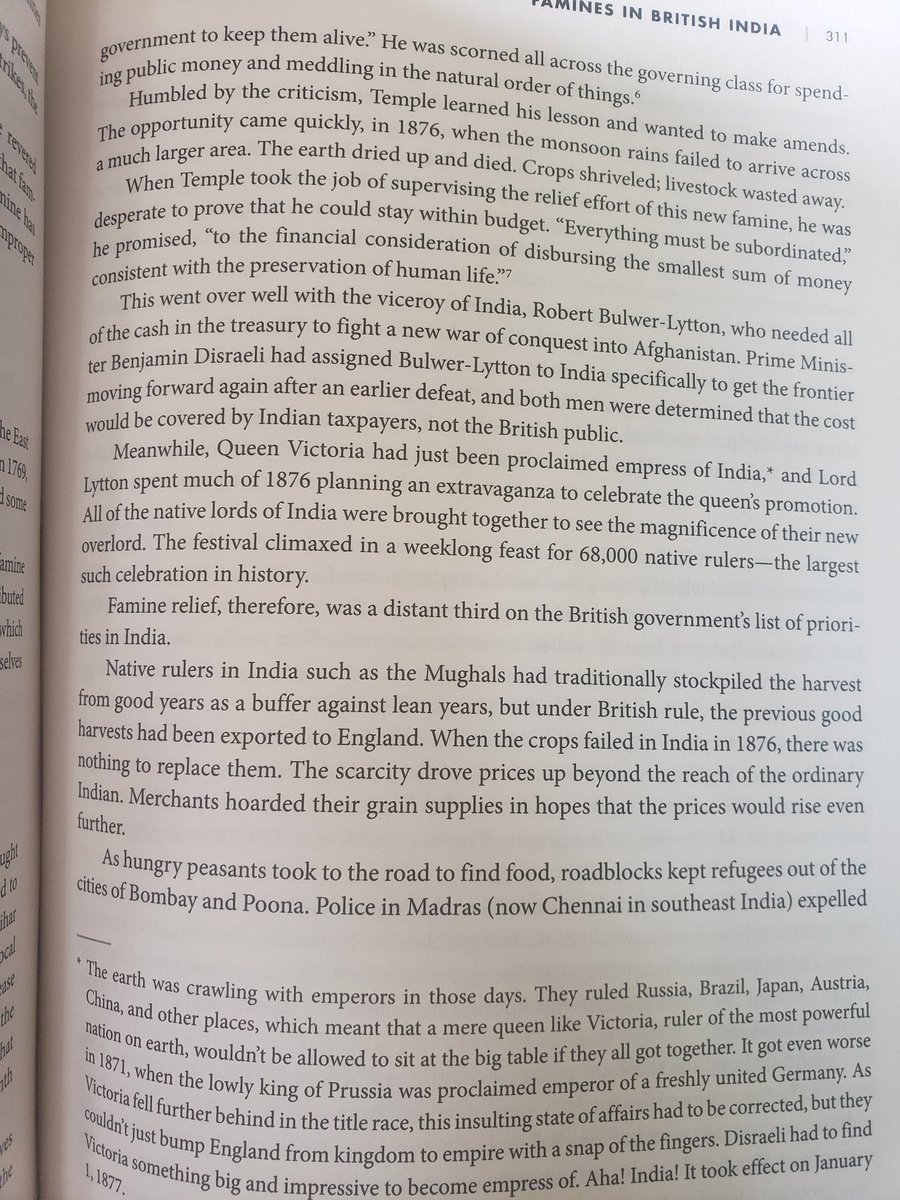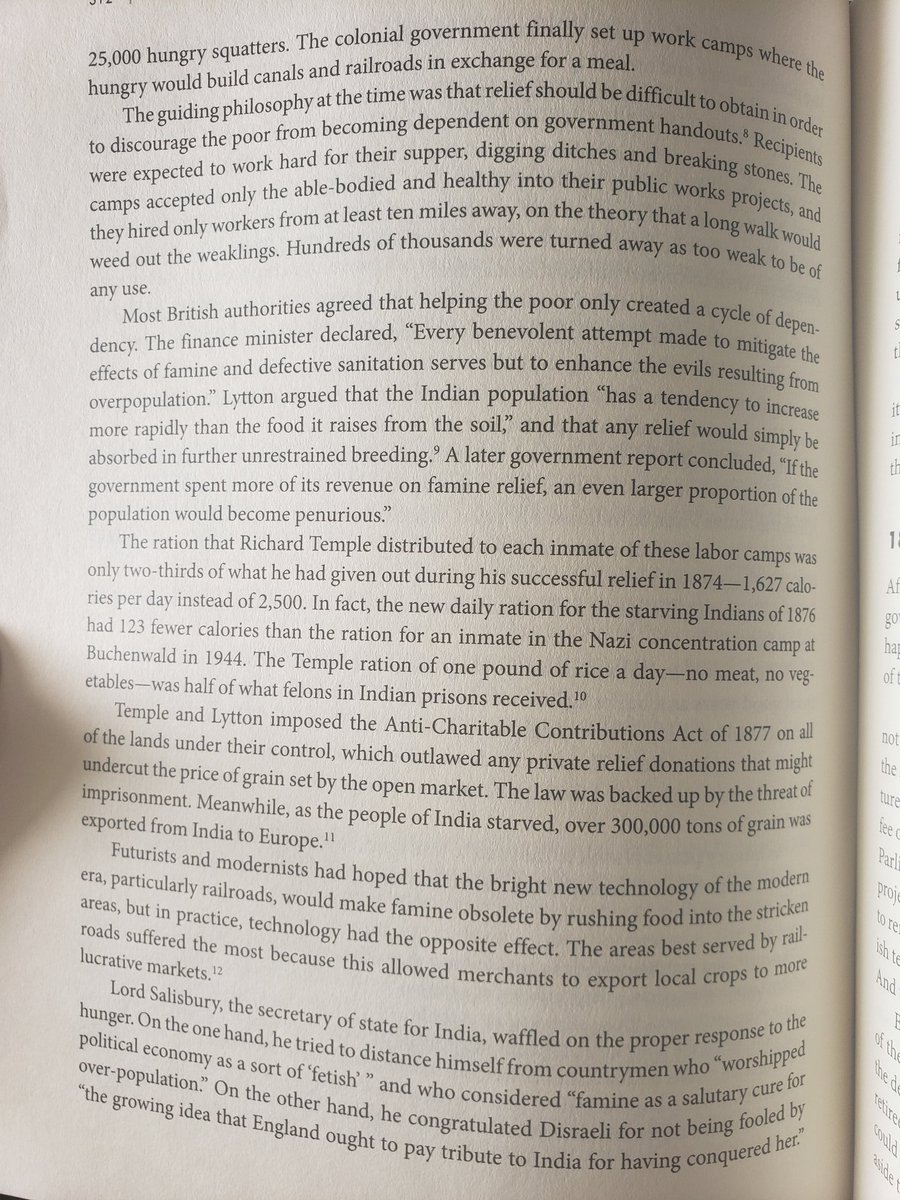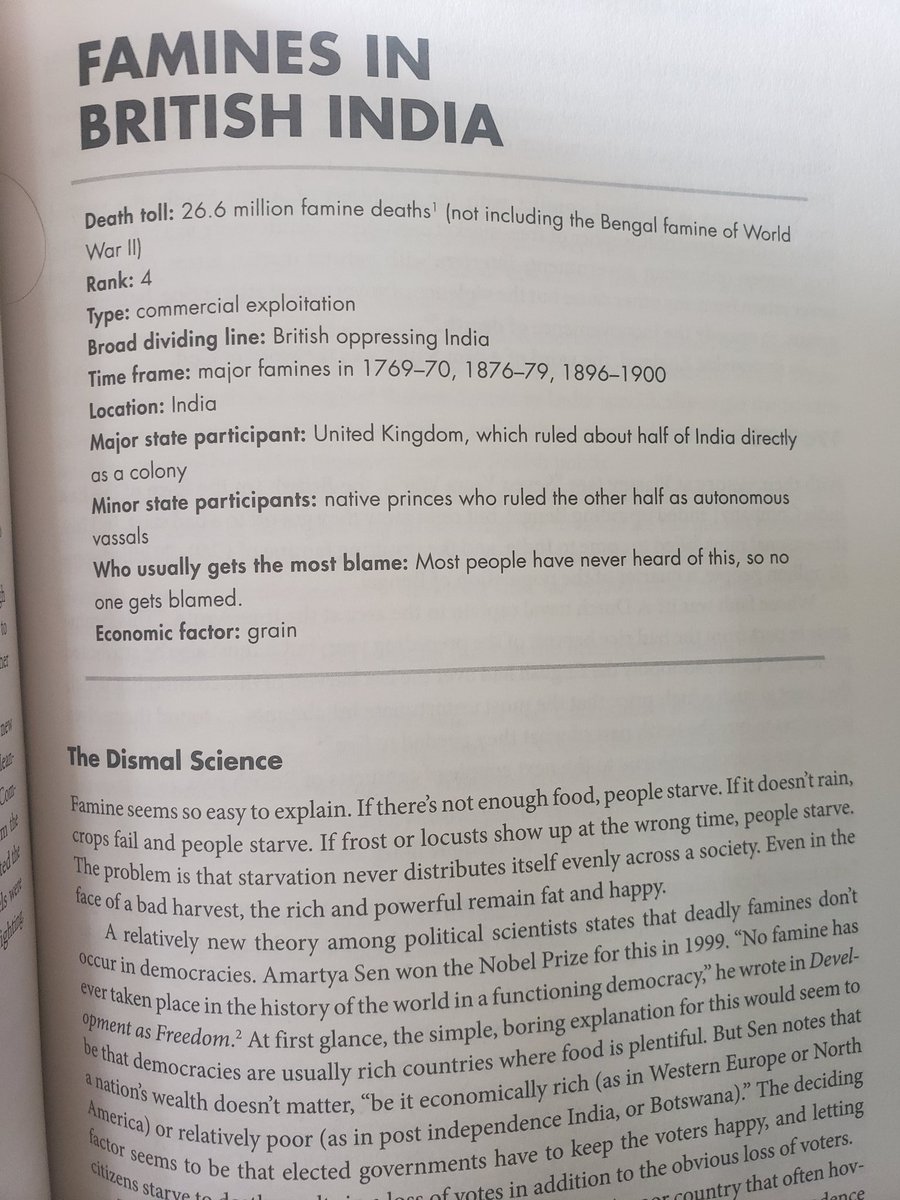1/OK, just for fun, let& #39;s talk about capitalism starving millions of people to death!
Yes, that& #39;s not a typo, I said "capitalism"...
Yes, that& #39;s not a typo, I said "capitalism"...
2/I recently purchased "The Great Big Book of Horrible Things", a chronicle of history& #39;s worst atrocities.
It& #39;s a great book, highly recommended! (Though I still think it should have been titled "Necronomicon"...) https://www.amazon.com/Great-Big-Book-Horrible-Things/dp/B012HTRI24">https://www.amazon.com/Great-Big...
It& #39;s a great book, highly recommended! (Though I still think it should have been titled "Necronomicon"...) https://www.amazon.com/Great-Big-Book-Horrible-Things/dp/B012HTRI24">https://www.amazon.com/Great-Big...
3/Now, we all know the story of how dogmatic adherence to communist theories (mostly, collective farming) killed tens of millions of people in China and the Soviet Union.
In fact, the book has a whole section on that, in addition to recounting the individual episodes!
In fact, the book has a whole section on that, in addition to recounting the individual episodes!
4/Typically when you bring this up, someone will say that capitalism has killed just as many or more people.
But the examples they bring up usually aren& #39;t very capitalistic at all (e.g. the genocide of Native Americans).
But the examples they bring up usually aren& #39;t very capitalistic at all (e.g. the genocide of Native Americans).
5/One example that I *thought* was a bad example was "famines in British India".
Because I mostly just knew about the Bengal Famine, in which Britain& #39;s WW2 effort starved millions of colonial subjects.
Horrible, but not very capitalistic.
https://en.wikipedia.org/wiki/Bengal_famine_of_1943">https://en.wikipedia.org/wiki/Beng...
Because I mostly just knew about the Bengal Famine, in which Britain& #39;s WW2 effort starved millions of colonial subjects.
Horrible, but not very capitalistic.
https://en.wikipedia.org/wiki/Bengal_famine_of_1943">https://en.wikipedia.org/wiki/Beng...
6/But! It turns out that earlier famines in British India were much BIGGER than the 1943 famine, and had little to do with any war effort.
Instead, these famines resulted from boneheaded economic policies!
Instead, these famines resulted from boneheaded economic policies!
7/Traditionally, India rode out bad harvests by redistributing food to the poor. But the British thought that this was against the principles of free markets.
So because they refused to redistribute, people starved en masse.
So because they refused to redistribute, people starved en masse.
8/British officials argued that redistributing food would create unhealthy welfare dependency!
But because India could only sustain its population (at that time) with redistribution, this "fetish" for "political economy" directly resulted in millions of deaths.
But because India could only sustain its population (at that time) with redistribution, this "fetish" for "political economy" directly resulted in millions of deaths.
9/Economist Amartya Sen has argued that it was democracy that prevented starvation in India. Democracy that led to redistribution. Free markets weren& #39;t enough to sustain the population. So free market ideology killed millions.
10/Thus, capitalism - defined here as an ideological commitment to free markets and government non-intervention in the economy - *can* kill millions of people when applied to an extreme. And in fact, has done so.
11/Of course, someone will pop up and say "oh but if the farmers had been able to buy insurance, blah blah blah".
No. Even if complete markets would have saved millions from famine (doubtful), this is like saying "oh but real communism has never been tried."
Excuses!!
No. Even if complete markets would have saved millions from famine (doubtful), this is like saying "oh but real communism has never been tried."
Excuses!!
12/So what do we learn from this episode?
We learn that economic ideologies, when taken to extremes, tend to kill a lot of poor people.
The mixed economy isn& #39;t just optimal in some textbook sense. It& #39;s literally what keeps poor people alive.
We learn that economic ideologies, when taken to extremes, tend to kill a lot of poor people.
The mixed economy isn& #39;t just optimal in some textbook sense. It& #39;s literally what keeps poor people alive.
13/The mixed economy - markets plus government redistribution, with human welfare as the goal - is not some technocratic "third way". It& #39;s the only moral economic ideology that exists.
(end)
(end)

 Read on Twitter
Read on Twitter